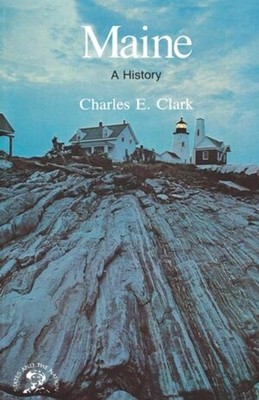
- We will send in 10–14 business days.
- Author: Charles E Clark
- Publisher: W. W. Norton & Company
- ISBN-10: 0393333442
- ISBN-13: 9780393333442
- Format: 14 x 21.6 x 1.4 cm, minkšti viršeliai
- Language: English
- SAVE -10% with code: EXTRA
Reviews
Description
For the Abnaki Indians who came east, Maine was Dawnland. Other settlers--Europeans--came west, searching first for Norumbega, a mythical city of gold and silver. What they found was more modest, but still it was enough to set them thinking of the different uses to which the place might be put. Most saw what they wanted to see: for naturalist John Josselyn, the region was an idyllic curiosity; Cotton Mather saw a moral desert inviting conquest by Puritan Massachusetts; James Sullivan pictured Maine as a symbol of the romantic nationalism of the new American nation; and in the nineteenth century, John Alfred Poore envisioned it as a vast commercial empire of shipbuilding and lumbering, with Portland as its capital. For Quaker New Dow, Maine was a crucible for testing prohibition and other reforms; for entrepreneurs after the Civil War, it was the site of paper manufacturing and potato farming that brought new exploitation, new French-Canadian immigrants, and a new concern for conservation of dwindling resources. Others more recently have seen a part-time Maine: a summer home to be visited once a year or marketed to those who do.
Today, Maine continues to evoke in resident and visitor alike conflicting images that mirror the desire both for more jobs and cheaper energy, and for unspoiled coastlines and forest--both the quest for prosperity and the need for natural places where men's thoughts tend to be, in the words of Maine native Henry Wadsworth Longfellow, long, long thoughts.
EXTRA 10 % discount with code: EXTRA
The promotion ends in 22d.09:35:05
The discount code is valid when purchasing from 10 €. Discounts do not stack.
- Author: Charles E Clark
- Publisher: W. W. Norton & Company
- ISBN-10: 0393333442
- ISBN-13: 9780393333442
- Format: 14 x 21.6 x 1.4 cm, minkšti viršeliai
- Language: English English
For the Abnaki Indians who came east, Maine was Dawnland. Other settlers--Europeans--came west, searching first for Norumbega, a mythical city of gold and silver. What they found was more modest, but still it was enough to set them thinking of the different uses to which the place might be put. Most saw what they wanted to see: for naturalist John Josselyn, the region was an idyllic curiosity; Cotton Mather saw a moral desert inviting conquest by Puritan Massachusetts; James Sullivan pictured Maine as a symbol of the romantic nationalism of the new American nation; and in the nineteenth century, John Alfred Poore envisioned it as a vast commercial empire of shipbuilding and lumbering, with Portland as its capital. For Quaker New Dow, Maine was a crucible for testing prohibition and other reforms; for entrepreneurs after the Civil War, it was the site of paper manufacturing and potato farming that brought new exploitation, new French-Canadian immigrants, and a new concern for conservation of dwindling resources. Others more recently have seen a part-time Maine: a summer home to be visited once a year or marketed to those who do.
Today, Maine continues to evoke in resident and visitor alike conflicting images that mirror the desire both for more jobs and cheaper energy, and for unspoiled coastlines and forest--both the quest for prosperity and the need for natural places where men's thoughts tend to be, in the words of Maine native Henry Wadsworth Longfellow, long, long thoughts.


Reviews